Navigating Motherhood and Addiction Recovery
November 10, 2024 •Tara Treatment Center l Franklin, Indiana

Motherhood and addiction recovery are incredible challenges on their own.
When you deal with them simultaneously, the struggle becomes extraordinarily difficult. Each day, you worry that losing the battle of addiction also could mean the loss of your right to parent - which can cause even more pain for you, your child and family members.
Recovering while parenting requires a balance between self-care and care for your child. Here’s a look at the realities, strategies and small victories you will face as a mother in recovery.
Embrace the Challenge: Acknowledge, Accept and Act
The first step in navigating motherhood and addiction recovery is acknowledging the challenges involved. Accepting that recovery is an ongoing process — not a single achievement — creates a foundation for compassion. Mothers often feel pressured to do it all, but in recovery, you must learn to lean into support, pace yourself and avoid perfectionism. Start with small, actionable steps that bring stability, like setting daily routines and building a circle of understanding among your friends or family.
Celebrate small victories, such as a day without relapse or even a peaceful morning with your child. Recovery is a journey, and each day offers a new opportunity to progress.
Establish a Strong Support Network
Isolating yourself is not a way to cope. It creates a significant barrier to your recovery and motherhood. Surround yourself with a compassionate network. This support can come in many forms: family members, close friends, therapy groups and specialized programs designed for mothers in recovery. Local addiction support groups or online communities, such as Narcotics Anonymous or Al-Anon, provide a safe space for shared experiences and guidance.
If possible, connect with recovery programs that consider the unique challenges mothers face, like daycare options during therapy sessions or meetings. Finding or even building a support system makes it easier to balance parenting duties and self-care commitments.
Practice Mindfulness to Manage Stress
Addiction recovery and motherhood carry heavy emotional demands. Mindfulness practices - such as meditation, breathing exercises and journaling - can help. Mindfulness not only eases daily stress but also strengthens the self-awareness needed for maintaining sobriety. Practicing mindfulness with children can be a great bonding activity, even in simple ways like taking nature walks, sharing gratitude lists or doing calm breathing exercises together.
Carve out a small, quiet space in your home for relaxation, free of distractions. When parenting gets overwhelming, use this space to reset and refocus.
Navigate Guilt and Building Self-Compassion
Feeling guilty is a comment challenge in addiction recovery. It is even worse for a mother. You worry that past behaviors or the perceived inability to be the "perfect mother" cannot be overcome. However, learning to forgive yourself is essential. Cultivate self-compassion by remembering that recovery is not a sign of weakness but of incredible strength. Being open with children about past struggles, when age-appropriate, can also help create understanding and a deeper connection.
Consider keeping a "compassion journal" to track moments of self-kindness or write letters of forgiveness to yourself. Remind yourself daily that you’re making courageous choices for a better future.
Build Routines for Stability
As a mother in recovery, establishing consistent routines provides a sense of security for both yourself and your children. Simple rituals, like reading before bed or family dinners, create a foundation of stability. Routines can also include dedicated times for self-care, recovery work and therapy, which help integrate the demands of motherhood with the focus you need for your sobriety.
Involve children in planning routines, giving them age-appropriate responsibilities to foster cooperation and a sense of shared family structure.
Prioritize Self-Care and Avoid Burnout
As you recover, you may often feel the need to “make up for lost time.” It is important to prioritize self-care without guilt. Taking time for therapy, exercise and even small breaks is essential. Recovery and parenting require a lot of emotional energy, so finding ways to recharge is vital for sustainable growth.
Develop a self-care routine that’s achievable. Even 10 minutes of daily relaxation or journaling can create a positive difference in both mental health and parenting.
Teach Resilience Through Example
Motherhood in recovery is an opportunity to show children what resilience looks like. By witnessing their mother’s journey through recovery, your children will learn the importance of persistence, honesty and self-compassion. Open conversations about emotions and healthy coping strategies can equip your children with tools for their future challenges. It’s a powerful way to demonstrate that struggles are part of life, and that recovery and self-betterment are ongoing, courageous choices.
Talk about feelings, the importance of asking for help and ways to stay positive. Show your children that it's okay to struggle, and equally okay to seek support, can help break cycles of silence and stigma.
GET HELP